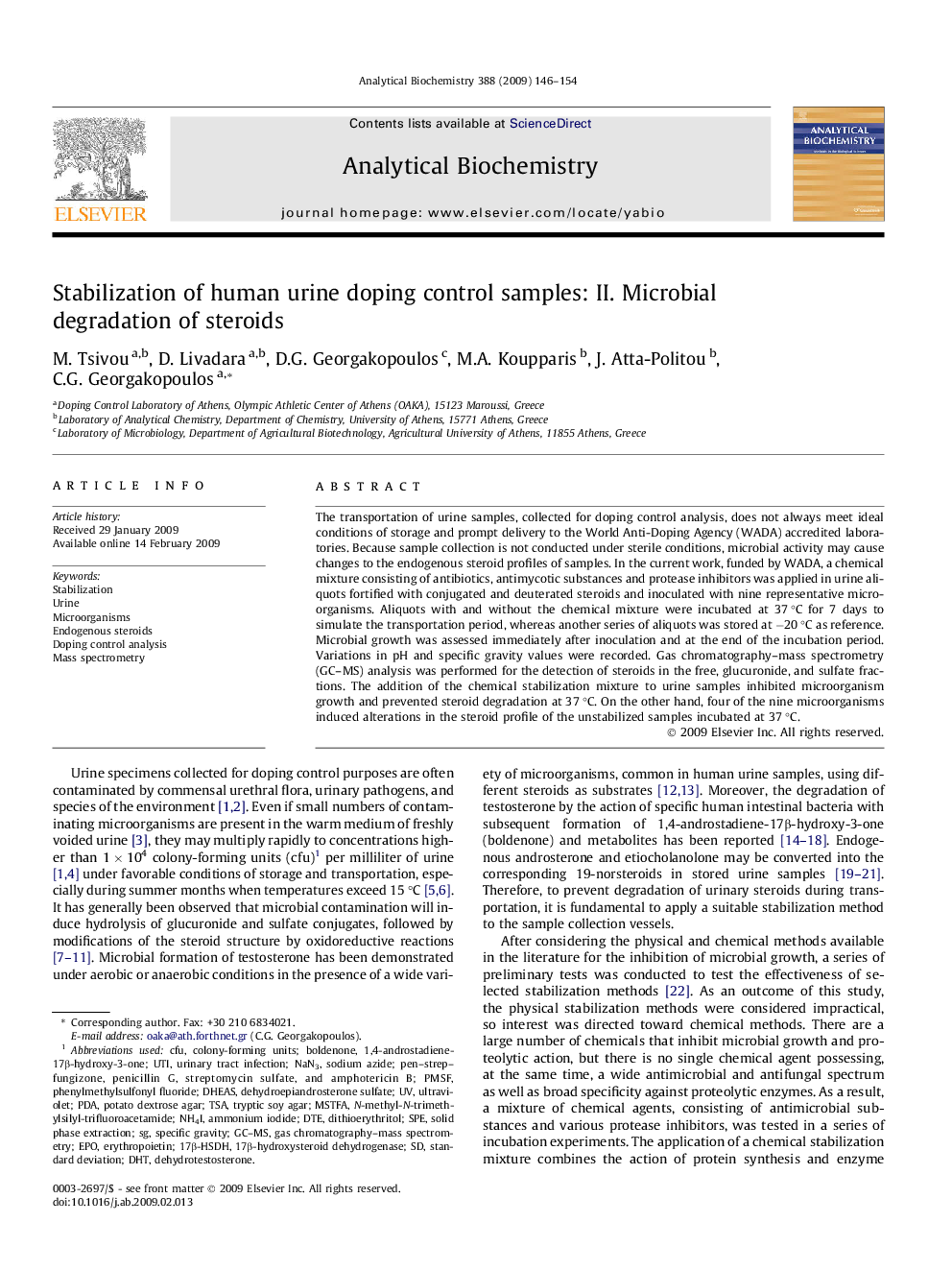| Article ID | Journal | Published Year | Pages | File Type |
|---|---|---|---|---|
| 1175899 | Analytical Biochemistry | 2009 | 9 Pages |
The transportation of urine samples, collected for doping control analysis, does not always meet ideal conditions of storage and prompt delivery to the World Anti-Doping Agency (WADA) accredited laboratories. Because sample collection is not conducted under sterile conditions, microbial activity may cause changes to the endogenous steroid profiles of samples. In the current work, funded by WADA, a chemical mixture consisting of antibiotics, antimycotic substances and protease inhibitors was applied in urine aliquots fortified with conjugated and deuterated steroids and inoculated with nine representative microorganisms. Aliquots with and without the chemical mixture were incubated at 37 °C for 7 days to simulate the transportation period, whereas another series of aliquots was stored at −20 °C as reference. Microbial growth was assessed immediately after inoculation and at the end of the incubation period. Variations in pH and specific gravity values were recorded. Gas chromatography–mass spectrometry (GC–MS) analysis was performed for the detection of steroids in the free, glucuronide, and sulfate fractions. The addition of the chemical stabilization mixture to urine samples inhibited microorganism growth and prevented steroid degradation at 37 °C. On the other hand, four of the nine microorganisms induced alterations in the steroid profile of the unstabilized samples incubated at 37 °C.
